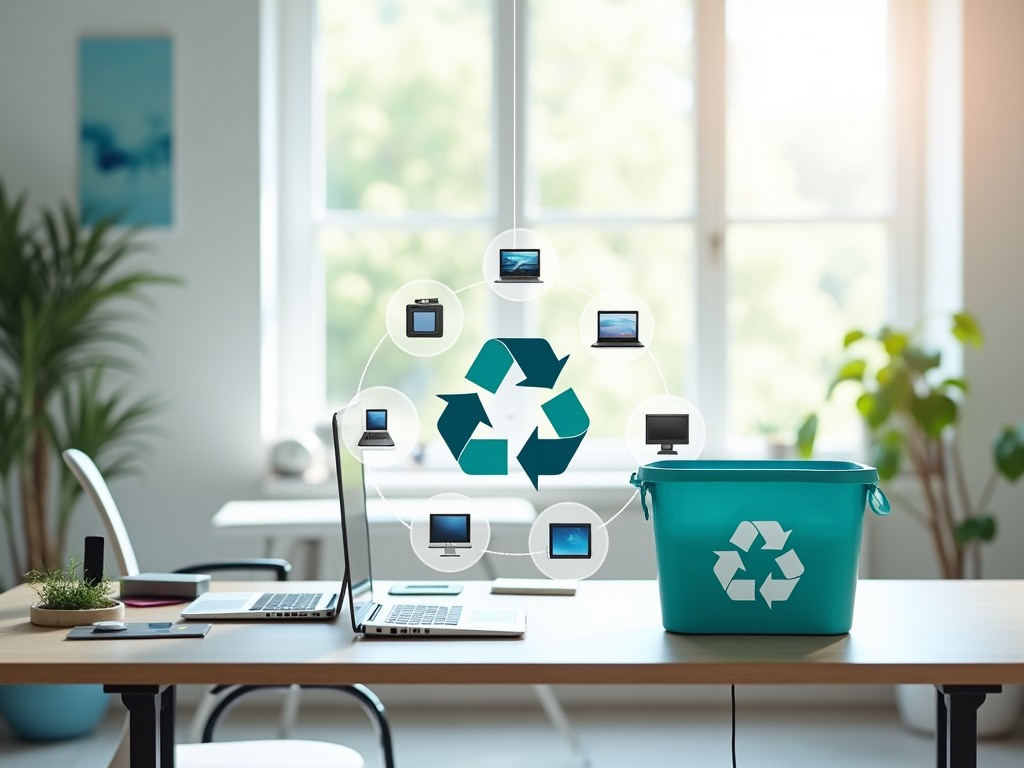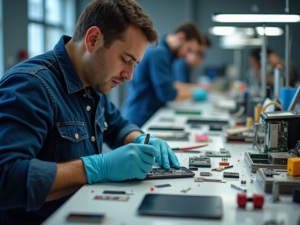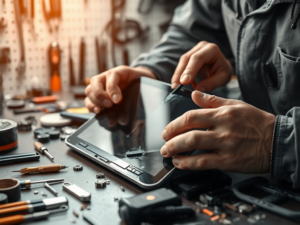The world is experiencing a rapid technological transformation, leading to an ever-growing list of outdated devices that clutter our homes and landfills. With the onset of new models coming out every year, our phones and computers quickly become obsolete. Many individuals are not aware of how to properly recycle these electronics, which can lead to environmental harm. Recycling old devices isn’t merely a chore; it’s a pivotal action we can take to safeguard our planet. Each gadget we dispose of has the potential to either poison our environment or enrich it through careful recycling. Understanding how to recycle responsibly empowers users to act sustainably, turning the tide toward a healthier ecosystem.
According to the Global E-waste Monitor, a staggering 53.6 million metric tons of electronic waste was generated in 2019, and that number is expected to swell even further. This enormous volume underscores the need for effective recycling initiatives that can reclaim valuable materials and reduce harmful waste. Recycling old devices not only helps mitigate pollution and resource extraction but also aids in the recovery of metals and plastics. These recovered materials can be reused in manufacturing new electronics, thereby significantly lowering the environmental footprint of creating new products. In light of all this, let’s explore how we can recycle old phones and computers properly, contributing to a sustainable future.
The Importance of Recycling Old Electronics

Electronics can contain substances that are detrimental to our health and environment, such as lead, mercury, and cadmium. When improperly disposed of, these materials can leach into the soil and water systems, leading to contamination. Recycling helps to minimize this risk while ensuring that components can be recovered and reused. By choosing to recycle, we conserve energy, reduce pollution, and prevent valuable resources from ending up in landfills. Overall, it’s not just about disposing of unwanted gadgets; it’s about making choices that reflect our commitment to a better planet. So, before you throw away that old laptop, consider what it could be in its next life.
Identifying What Can Be Recycled

Knowing what devices you can recycle is essential to making responsible decisions. Not everything should be discarded—with proper methods, several electronics can find new life through recycling. Commonly, various types of devices are eligible for recycling. The following list highlights the most common electronics that can be recycled:
- Smartphones
- Laptops
- Desktops
- Tablets
- Accessories (such as chargers and headphones)
It’s crucial to double-check local regulations, as they can vary by area. While some programs accept a wide range of devices, others may have limitations based on their capabilities. Being informed ensures that you reap the full benefits of recycling while avoiding any damages to the environment.
How to Prepare Your Devices for Recycling
Before handing off your old devices, it’s important to prepare them correctly. This step ensures your personal data remains protected and that the recycling process runs smoothly. Here are practical steps you should follow:
- Backup your data and files.
- Perform a factory reset to wipe any personal information.
- Remove SIM cards and memory cards from phones and computers.
- Clean the device to improve its recyclability.
These practices not only safeguard your information but also enhance the chances of your device being accepted for recycling. A properly prepared gadget will often find a second life if donated or refurbished, benefiting someone else in need.
Where to Recycle Old Phones and Computers
Now that you know which devices can be recycled and how to prepare them, it’s time to explore your recycling options. Thankfully, there are various accessible avenues for responsibly disposing of electronics. Below is a table outlining some popular methods to recycle your gadgets:
| Recycling Method | Description |
|---|---|
| Local Recycling Programs | Community-based programs that offer drop-off locations or collection events for electronic waste. |
| Retailer Take-Back Programs | Many retailers have designated programs to accept old electronics for recycling. |
| Charitable Organizations | Donating devices to groups that refurbish technology for schools and low-income families. |
Take time to research your options and choose the most convenient and responsible method for you. Local recycling initiatives can make a meaningful impact in preventing e-waste from polluting your community.
Environmental Benefits of Recycling Electronics
The environmental advantages of recycling electronics are numerous and cannot be understated. One of the most significant benefits is the reduction of landfill waste. When we recycle, we extend the lifespan of our landfills and decrease the harmful effects of e-waste. Additionally, recycling electronics conserves natural resources, allowing manufacturers to use recovered materials, which helps preserve finite minerals and metals.
Moreover, recycling drastically reduces emissions that contribute to climate change during the manufacturing process. Ultimately, we’re not just recycling electronics; we’re implementing a vital step toward sustainability and ecological responsibility.
Conclusion
In conclusion, recycling old phones and computers is more than just a fleeting trend; it’s a responsibility we all share. By following simple guidelines for preparing and disposing of your electronics, you can contribute to a more sustainable future. Each decision you make echoes through supporting recycling initiatives and reducing e-waste’s heavy toll on our planet. Whether you choose local programs, retailer take-back schemes, or charitable donations, your efforts matter. When we work together to recycle responsibly, we create a cleaner, healthier world for generations to come. Now is the time to take action—don’t let your old devices sit idle; recycle them properly!
Frequently Asked Questions
- Why is it important to recycle old electronics? Recycling helps prevent toxic substances in electronics from entering landfills, conserves resources, and reduces pollution.
- Can I recycle my old phone or computer if it doesn’t work? Yes, many recycling programs accept non-working devices and dismantle them for parts and materials.
- What happens to the data on my old devices when recycled? If you perform a factory reset and remove personal data properly, the chances of your data being accessed are minimized significantly.
- Are there any fees involved in recycling my old electronics? Many programs offer free recycling services, although some may charge a small fee for specific devices or services.
- Where can I find local recycling programs? You can check your local government’s website or resources like Earth911 to find nearby recycling programs and events.












